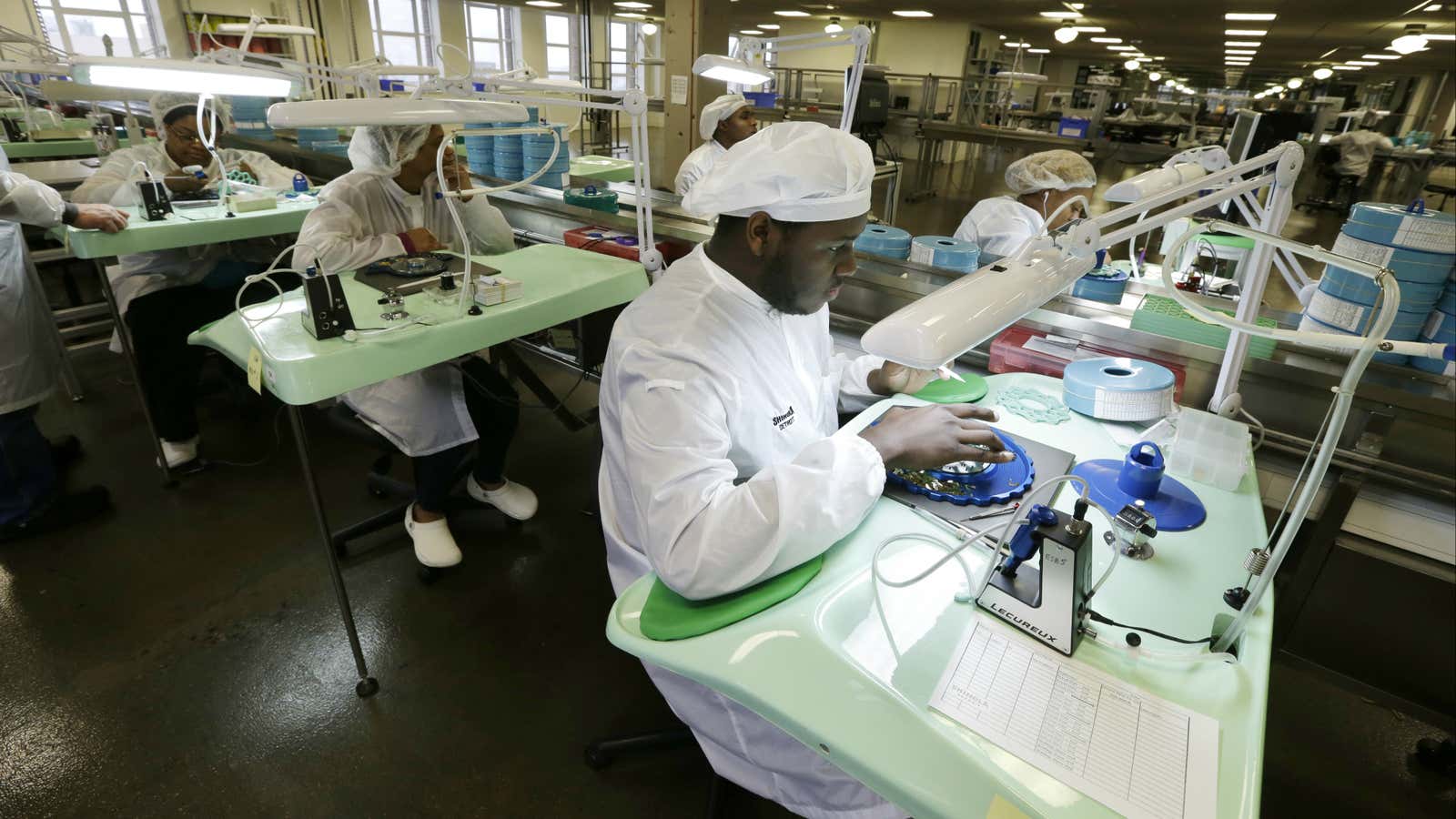On June 16, the US Federal Trade Commission (FTC) wrote a letter to Shinola, the Detroit-based manufacturer of watches, bicycles, and leather goods, solidifying its position that the brand should not be using the slogans “Built in the USA” or “Built in Detroit,” as it currently does. That’s too bad, because the descriptions are entirely accurate.
But according to the FTC, they’re misleading, because Shinola—like pretty much any company still manufacturing products in the US—is doing so with parts that come from elsewhere. In Shinola’s case, most notably, those are Swiss watch components, including the essential timekeeping components called movements. Many watch companies, even Swiss ones, buy their movements and other parts from outside suppliers, and Shinola’s, made by its partner, the Swiss supplier Ronda AG, contain parts from Switzerland, China, and Thailand.
This is pretty typical of any item manufactured in today’s global economy. Your made-in-Italy jacket might be constructed of Brazilian leather, and close with a Chinese zipper. Your made-in-China undies might be knit of US-grown cotton, with an elastic waistband that originated elsewhere. And what about cars? Is an assembled-in-Texas Toyota more or less “American” than a Chevrolet Silverado assembled in Mexico?
The global economy is a confusing, convoluted, web. So it stands to reason that the FTC closely guards the “Made in USA” slogan—and it also stands to reason that Shinola attempted to redefine it. “Made in USA” doesn’t totally work for a Detroit-based factory partnered with a Swiss manufacturer of watch movements. Instead, with ”Built in Detroit,” Shinola conveyed the spirit of the company—which claims to employ about 400 people in the city—and clearly referred to the assembly stage of manufacturing.
“We have genuinely tried to be completely transparent as to the origin (and mission) of our products from the outset,” Shinola’s founder, Tom Kartsotis, said in an emailed statement:
Shinola is and has been a leader in bringing as much of the manufacturing process back to the US as it can possibly achieve. But as you can imagine, many of the components and raw materials are simply not available in the US, and because of that we are unable to meet the almost unattainable “Made In USA” standards created by the government. We found it confusing that a car, for example, isn’t held to the same standard as a watch. The inconsistency of the policies and laws, as well as the subjective nature of some of the process, renders it difficult to navigate as a U.S. company and compete against other companies, U.S. or foreign, who benefit from the overall lower costs in off shore production. Until a change in policy clarifies for the consumer what it truly means to be Made in the USA, Shinola will always strive to do as much as it can in America with the benefit of an American workforce. We would like to assure our customers that our high quality products will continue to be as American as possible while remaining a competitive alternative to products that are not supporting the same level of investment back into the U.S.
But the FTC warned it would treat “Built in USA” or “Built in Detroit” the same way it does “Made in USA.” So going forward, Kartstotis said Shinola will continue to use it slogans, with the addendum “of Swiss and imported parts.”
He’s certainly right about the confusing and subjective nature of the FTC’s decisions. When asked if the brand would be allowed to continue printing “Detroit” on its watch faces as it currently does, the FTC’s attorney, Julia Solomon Ensor, replied to what might have been a simple yes or no question:
The FTC applies a “net impression” analysis to marketing claims to determine whether they are likely to deceive consumers. In this case, some uses of the word “Detroit,” for example, to indicate the location of Shinola’s headquarters, are not likely to deceive consumers. If, however, the company used the word “Detroit” as part of an ad that created an overall net impression of an unqualified “Made in USA” claim for a watch with significant imported components, that would be of concern.
I’m pretty sure that means Shinola can keep it. If a t-shirt made overseas can picture an American flag, surely the dials of watches assembled in Detroit should be able to carry the city’s name. But then again, who knows? “Built in Detroit” seemed pretty clear to me too.
